Service hotline
+86 0755-83975897
Release date:2024-05-14Author source:KinghelmViews:2007
The "new productive forces" vigorously promoted now are advanced productivity that comprehensively enhances production efficiency, driven by breakthroughs in science and technology, optimized allocation of production factors, and industrial upgrading. Song Shiqiang from Slkor and Kinghelm, believe that a notable characteristic of Shenzhen is its efficiency. Shenzhen's culture embodies "efficiency, pragmatism, pioneering innovation, and openness. "This aligns with the essence of Shenzhen's economic miracle and reflects the remarkable achievements of China's 40 years of reform and opening up. If Shenzhen is likened to the crown jewel of China's economic development, Huaqiangbei and the Science and Technology Park are the two pearls on this crown. The billboard in Shekou proclaiming "Time is money, efficiency is life," the large characters on the CAS building in the Science and Technology Park encouraging innovation and tolerance for failure, the editorial of the Shenzhen Special Zone Newspaper advocating "Bravely leading the tide and singing in the wind," and the slogan "Once you come, you are a Shenzhener" all represent the spiritual core of Shenzhen. The construction pace of the Guomao Building, the muscular man breaking free from constraints in front of the old museum square, the iconic Shenzhen sculpture, and the statue of Deng Xiaoping at the top of Lianhua Mountain, along with the brightly lit Huawei office building late at night, all symbolize the hard work and prosperity of Shenzhen residents.
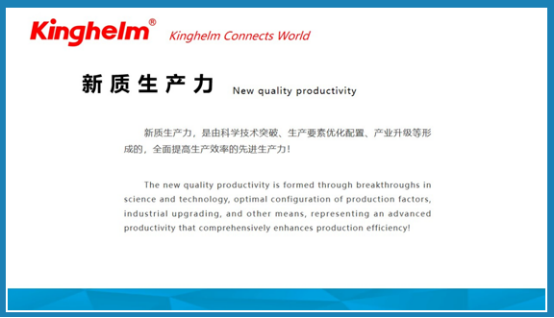
Song Shiqiang discusses the new productive forces
A few days ago, there was a semiconductor outbound exchange meeting in Huaqiangbei, sponsored by Slkor Micro Semiconductor "Slkor" (www.slkoric.com). There was a boss lady who made money a few years ago trading Texas Instruments (TI) stocks. Now, she's all over the world attending training sessions to enhance cognitive abilities and boost morale. She took the stage very excitedly, calling us "family" and firmly stating the need to promote new productive forces. I asked her how she plans to do that with just two people in her company. She replied, "Stay true to your original aspiration." I pressed for specifics, and she said, "Let flowers be flowers and trees be trees." I countered with, "What about 'bridges are bridges and roads are roads'?" When I asked how the new productive forces affect labor objects, changes in means of production, and how workers should keep up, she said, "You have to live earnestly to find the hidden candies," then hurriedly left the stage. I believe in avoiding trendy rhetoric and focusing on logic, facts, theoretical support, and data for persuasion.
According to the French economist Jean Baptiste Say, capital, labor, and land are the fundamental factors of production and economic activity. This theory was also adopted by the British economist Adam Smith in "The Wealth of Nations." I'll analyze these three points, along with the efficiency improvements brought by new tools such as mobile internet, CHATGPT, and Huawei's PanGu model. These tools have greatly increased social efficiency.

First: Efficiency of Money (Capital).
Taking our company, Kinghelm (www.kinghelm.net), and Slkor Micro (www.slkoric.com), a semiconductor firm, along with the electronic information industry as examples, let's analyze the turnover rate of capital. For most small companies, from material procurement to production processing, and then to shipping goods to customers and receiving payments, the cycle takes about six months, meaning a turnover of twice a year. However, industry-leading giants such as Midea, BYD, Huawei, Apple, Xiaomi, Gree, and Foxconn, as well as former companies like Evergrande Real Estate, exert pressure on suppliers by delaying payments for three to six months before issuing acceptance bills. Meanwhile, they collect advance payments from downstream customers or cash from agents, completing a turnover cycle in about two months, which is three times more efficient than the former model. Larger companies also establish their own capital pools and financial companies to engage in financial services such as factoring, further increasing the efficiency of capital utilization and profitability. Most major companies in our vicinity adopt this model. The automotive industry and state-owned enterprises and central enterprises are particularly affected areas, where they exploit their market dominance and monopoly advantages to exploit small and medium-sized enterprises.
"Time is money, and efficiency is life," was a slogan put forward by Mr. Yuan Geng, a veteran in the Shekou Industrial Zone. This was inspired by an incident where he wrote a check for over twenty million Hong Kong dollars to a bank in Hong Kong. Out of courtesy, he planned to treat the person coming to collect the check to dinner. However, the individual declined, stating that it was Friday afternoon and they needed to rush back to Hong Kong to deposit the check. Otherwise, delaying until Monday for the deposit would result in a loss of two days' interest income! This incident greatly impacted Yuan Geng, leading him to propose this slogan, which later became a symbol of the spirit and culture of Shenzhen City. This also illustrates the issue of capital turnover efficiency.

Second: Efficiency of People (Labor).
I'll analyze human efficiency in terms of hardware and software. In terms of hardware conditions such as weight and height, there's little difference between a scientist and a security guard. To improve human efficiency, efforts should focus on enhancing skills through education, vocational training, and maximizing effective working hours.
American economist Jacob Mincer proposed an income equation model relating workers' wages to variables such as education and work experience. Research shows that for industrial workers in the U.S., each additional year of education increases wages by 5%-10%, with an international average of 9.7%. Studies by Chinese scholars such as Ge Suqin, Hu Anning, and Song Lina indicate that due to rapid economic growth, China's rate of return reached 10% at one point, the highest in the world for a period of time.
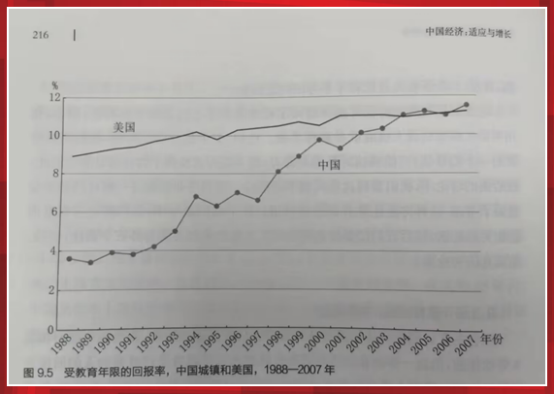
Ge Suqin and Yang Tao - Comparison of Returns to Education between Chinese Urban and American Population
Now let's look at the situation of economies. Israel boasts a high level of education, with approximately 24% of its labor force holding graduate degrees or higher, ranking first globally. Despite poor domestic natural resources and living conditions, Israel achieves a per capita GDP of around $53,200. Notably, Israel also demonstrates strong competitiveness in industries like manufacturing, modern agriculture, and defense.
Under similar conditions, increasing labor hours can proportionally boost "labor efficiency." From the theory that "wealth accumulates through positive labor," comparative advantages emerge. Companies like Tencent, Alibaba, and Huawei have pursued this strategy. For example, in contrast to a European branch of Huawei, where employees worked tirelessly, the rival company's employees indulged in coffee, music, and beer daily. Huawei's "5+2" or even "round-the-clock" work culture has led to its significant lead. Diligence is a hallmark of the Chinese nation, symbolizing national identity. Nobel laureate Coase remarked on the astonishing diligence of Chinese people, even finding it intimidating. In places like Shenzhen's technology parks and Qianhai, many office buildings remain lit up at night. Numerous small and medium-sized enterprises and private entrepreneurs in Shenzhen work over 100 hours per week. While companies like Kinghelm (www.kinghelm.net) and Slkor (www.slkoric.com) advocate for a no-overtime culture, colleagues utilize fragmented time efficiently, contributing to our rapid growth over the past two years. According to data from the National Bureau of Statistics, China's labor force participation rate is as high as 76%, ranking first and far surpassing the United States' 65% and Japan's 58%. This serves as evidence of highly efficient labor force and is fundamental to China's economic miracle!

Third: Land Efficiency
Land, being immovable and inheriting natural endowments and resource aggregation, serves as the carrier for all production, business, and social activities. According to the latest reports, the Guangdong-Hong Kong-Macao Greater Bay Area's GDP surpassed 14 trillion yuan in 2023, accounting for less than 0.6% of the national land area but creating 1/9 of the economic output. The astonishing land efficiency reflects the region's formidable competitiveness!
Land efficiency impacts various aspects of society and the economy. In the north, nomadic peoples require about 250 mu (roughly 41 acres) of land to sustain a family, while in the south, agricultural civilizations can sustain a large family with just one mu of land. In my hometown in the Sichuan Basin, I personally manage approximately 3 mu of land. With the implementation of seasonal rotation and refined management, we never face starvation, as land efficiency has increased significantly. In the industrial civilization era, with changes in production factors, the reliance on land diminishes. People can live and work in stacked buildings. For example, the output value of a single building in Futian CBD, Shenzhen, exceeds that of my hometown's Xichong County. Output per unit of land area reflects competitiveness.
In commercial operations, retail sales per unit area are termed "sales per square meter," and similarly, a city's GDP output per square kilometer of land is calculated. Shenzhen's GDP in 2023 was 3.46 trillion yuan, ranking among the top in the country. However, Shenzhen's area is only 1,997 square kilometers, less than half or even one-third of its competitors Beijing, Shanghai, and Guangzhou. It boasts the highest "sales per square meter," indicating its high quality. Worth mentioning is that despite limited land area, nearly 40% of Shenzhen's total GDP comes from industrial output, concentrated in cutting-edge industries such as electronic information and advanced manufacturing, laying a stronger foundation for future development. With high population density, social public services are more accessible at lower costs, and the efficiency of communication and transactions is higher. The ecosystem of development, inclusiveness, and innovation is also conducive to entrepreneurship in Shenzhen.
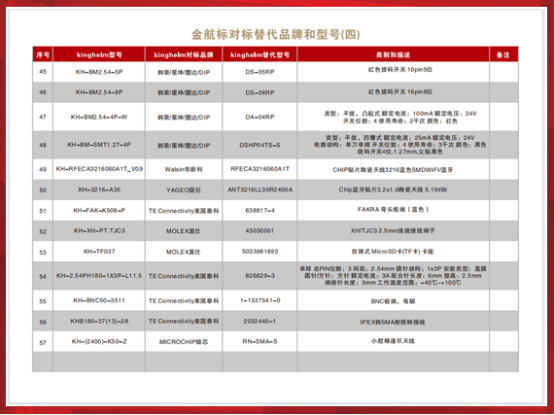
Singapore boasts the world's highest land efficiency, with a land area of only 733.1 square kilometers and a population of 5.64 million. In 2023, its GDP reached $501.3 billion, a remarkable feat. Sim Lim Square, covering just 1.46 square kilometers, is a prime example, with its electronic market generating approximately $300 billion in transactions annually. Typically, a couple manages a single counter in Sim Lim Square, with an area of just one square meter, generating tens of millions in revenue per year, contributing to the creation of numerous millionaires and billionaires in the area. Our company, Slkor, has opened two flagship stores in Sim Lim Square, attracting a constant stream of customers for product pickups.
Understanding these examples aids in grasping the concept of "new productive forces" and contributes to enhancing the efficiency of companies or economies (to be continued in the next part).
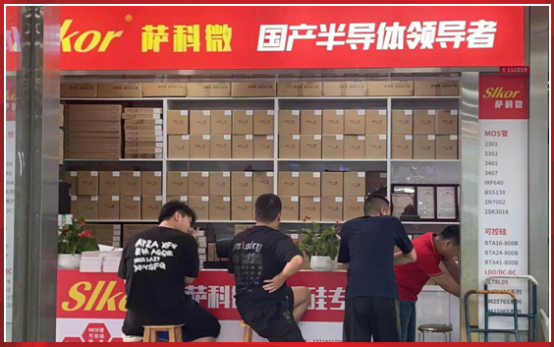
SLKOR Micro's Huaqiangbei Store
Introduction to Kinghelm and SLKOR
Slkor (www.slkoric.com) benchmarks against international giants like Texas Instruments (TI), AOS, and ON Semiconductor, studying their product direction, management models, and technological innovations. Kinghelm Electronics (www.kinghelm.net) continuously learns from connector giants like Amphenol, TE Connectivity, Molex, HRS, Luxshare Precision, Foxconn, JAE, as well as domestic peers such as Guizhou Space Appliance, Dongguan Donglian Precision Technology, Shenzhen Tongmao Electronics, Changying Precision, Sunway Communication, and Huaxin Antenna. Both Slkor and Kinghelm uphold a corporate culture of "integrity," "progress," "perseverance," and "attention to detail," focusing on improving product quality, service levels, and enhancing competitiveness for sustainable development.
Slkor (www.slkoric.com) has research institutions in Busan, Beijing, and Suzhou, with a laboratory and central warehouse in Shenzhen headquarters. Their product range includes TVS diodes, power discrete devices, LDO power management chips, AC-DC converters, and recently introduced new products like Hall sensors, ADCs, BMS, sensors, high-speed optocouplers, and passive crystals, establishing the "SLKOR" brand with widespread recognition and reputation.
Kinghelm, with the motto "Kinghelm Connects World," specializes in microwave RF technology. Their laboratory in Tangxia, Dongguan, is well-equipped, and the production base in Luzhai County, Guangxi Province, ensures timely delivery of high-quality products. Kinghelm's product lineup includes Beidou GPS antennas, Bluetooth, WiFi antennas, RF coaxial cables, connectors, sockets, plugs, signal switches, SMA, Type-C, HDMI, USB interfaces, automotive wire harnesses, and customized non-standard products.
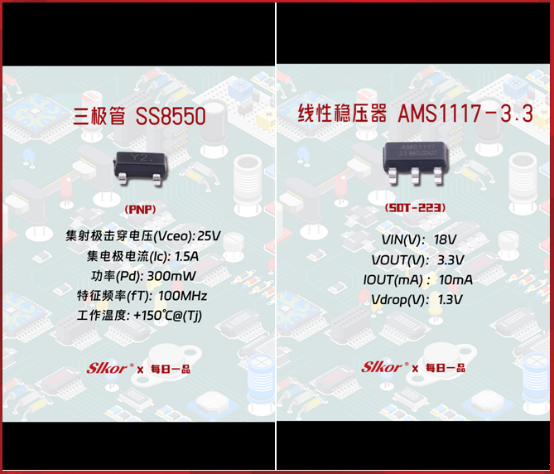
General Manager Song Shiqiang (Huaqiangbei Song Shiqiang) conducts research on Huaqiangbei's "The Wealth Code of Huaqiangbei," "Why Huaqiangbei Has So Many Billionaires," "Study on Huaqiangbei's Knockoff Cellphones," "Transformation and Development of Huaqiangbei," "Rebuttal of Bloomberg's Huaqiangbei News," "Huaqiangbei's Transformation: Hardware and Software Upgrades," and "The Grey Industry Chain of Knockoff Bluetooth Earphones in Huaqiangbei." These articles have been republished by authoritative domestic and international media outlets such as People's Daily, Xinhua News Agency, Global Times, Associated Press, Yahoo News, The Wall Street Journal, and Harvard Business Review, in efforts to promote Shenzhen's Huaqiangbei globally.
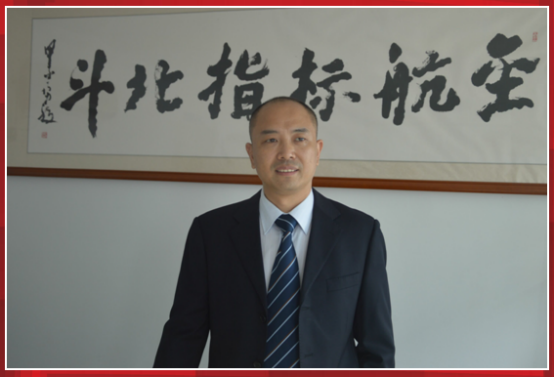










Copyright © Shenzhen Kinghelm Electronics Co., Ltd. all rights reservedYue ICP Bei No. 17113853